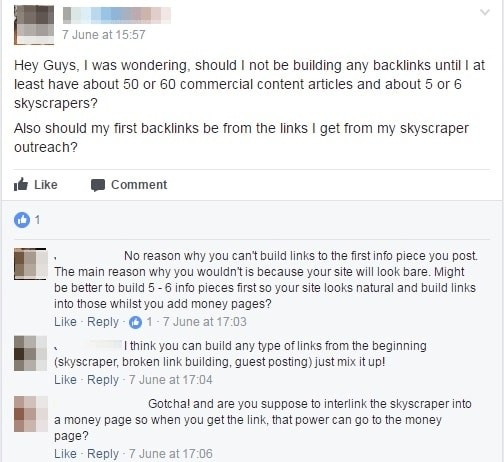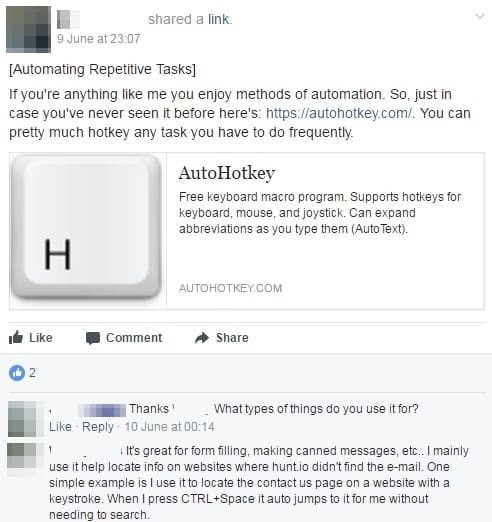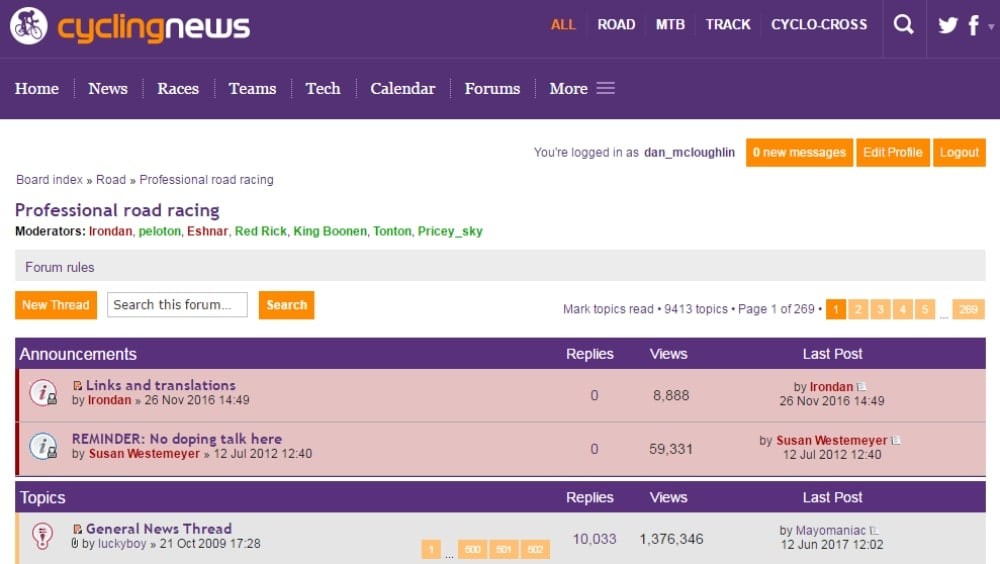What you will learn
- Why you should build a community
- What a community looks like
- Which platform you should use to build your community
- How to build a community
- How to manage and moderate a community
In this week’s episode, we talk about building a community for your authority site.
For us, building a community is all about having another way to interact with your audience.
Because it is not directly tied to revenue, this is something that a lot of affiliate marketers ignore.
But, if you want to scale up, it is a necessary step.
Nowadays, whenever we’re picking a niche, we consider the potential to build a community. It’s a problem for us with Health Ambition. Health Ambition is such a broad subject that it is difficult to narrow in on the areas that all of our readers have in common.
When it came to Authority Hacker, we learned our lesson. We now have thriving Facebook groups for The Authority Site System and Authority Hacker Pro.
What can you gain from building a community? And why is it necessary?
Why Build a Community?
Focus on Your Most Engaged Readers
It is an opportunity to give your readers the opportunity to engage with you.
Think about it. The people who are interested in your topic, your site, your content, and even interested in you, are more likely to buy things.
It then makes sense to have all these people in one place.
Once your readers are in one place (signed up to your Facebook group or forum), they are in a place where you can direct them.
What you have effectively done is segmented your customer base by the most interested and engaged readers.
The result is that you are left with highly engaged, warm traffic source and another place to sell.
People Provide Value to Each Other
One of the most valuable aspects of a community, is that members can interact with each other.
If you have passionate and engaged members, you can create a situation where they are helping each other out.
The great thing about this is that it is all happening under your brand.
This happens all the time on the AH Pro Facebook group.
We have some great members in there. When someone raises a problem on the page, more often than not, it’s another member who jumps in with a solution.

This also has the added benefit of reducing the level of support required.
A Place to Keep Your Ear to the Ground
Part of the problem with being an expert in your niche is that you forget what you didn’t know.
It can be hard to stay in touch with the issues that people have when they first start out. Having this feedback mechanism, where people post the issues they are having, can be a great way to remind yourself.
This real benefit of this is that it informs your content creation. It gives you the opportunity to create content for the user that solves problems.
We try to achieve a good balance between content intended to rank and content intended to drive engagement. Ideally, a single piece of content would do both, but that’s not always possible. It also allows you to poll your group to find out what kind of content they want.
Our Facebook group also helps us keep up with what is going on in our niche. We can learn from the members as much as they learn from us.

They share what they are trying, what has worked and what’s failed. They can also share any new trends or tools that we may have missed out on elsewhere.
What Does a Community Look Like?
There are two options when starting a community, is it closed or is it open to everyone?
This can often be viewed as paid or free but they are not, necessarily, interchangeable.
The main trade off between a free and a paid community is that a free community will get more visitors, whereas a paid community will get a higher quality of visitors.
When you first start out it can be difficult to create a paid community immediately.
Really, you need a critical mass of engaged people in your community before it provides any value. If you do not have any people in it then there are not going to be any threads or conversations happening.
Free / Open to Everyone
With a free community, it can be easy to get a lot of people in a short period of time. If you have an email list or you invite people you know or have worked with in the past, then you can generate numbers pretty quickly.
The drawback of this is that you have to work a lot harder to maintain the quality. Some people will just be there to spam and promote their own products.
In this type of forum, you are also more likely to get lots of basic questions. For example, questions like “how to install wordpress”.
Now, there is nothing wrong with that. When it becomes a problem is when it puts off more experienced users from getting involved with the group.
It can make people think that everyone else in the group is at a much lower level than themselves. This can put people off and stop them getting involved in discussions.
Paid / Closed Community
The most difficult thing about a paid community is that it is hard to sell.
To get people to sign up, you would probably need to create group exclusive content. Another option is, to have a mini info product where people get free access to the group after signing up. If there is an empty community it is going to be very difficult to get someone to pay to join.
A caveat to that is if you provide the value. If you are someone who is well known in your niche and already have a following, access to you could be reason enough for someone to pay to sign up.
Pro Tip
You are not allowed to charge for access to a Facebook group under their terms and conditions. With the Authority Hacker Pro group, you get free access when you buy the program.
On the plus side, you often end up with a tighter-knit, more invested group of users.
People are more open. They share their site, talk about what works for them.
What we have found in our experience, is that the value of what is contributed per person is much higher in a paid group.
Part of this is, that you immediately count out the freebie hunters. If someone is willing to part with their money to be a part of your group, they are obviously interested.
How to Build a Community
There are two main formats that you can use to build a community. Either a Facebook group or a forum.
Facebook Groups
Pros
- Audience are already on Facebook
- Facebook drives engagement through likes and notifications
- No need to sign up for new account
- Audience already visit site regularly
Cons
- Finding old topics – disappear quickly
- Not easy to pin topics
- Membership Management/ User Access
Forums
Pros
- Free WordPress Plugins
- Integration with membership plugins
- Ownership and Control
- Privacy Control
- Organized Content
- Better Search
- Longer, more detailed Posts
Cons
- Difficult to start from scratch
- Need to create account
- Spam – lots of tools to spam forums with links
- IT – Need to deal with hosting and integrations
- Have to work to keep up engagement
We recommend, at least to begin with, using a Facebook group for your community. It is definitely easier to manage than a forum.
However, if you have a community numbering in the thousands, you should start to think about moving towards a forum. They have the functionality to deal with this volume of posts in a way that Facebook groups are just not capable of.
How to Manage and Moderate a Community
Moderation was something we never thought about too much when we launched the group.
In forums, you will often see some pinned threads with the forum rules.

At launch, we basically had 2 rules:
- Don’t be spammy or promote things without asking
- Use common sense (Don’t be a douche)
This works up to a point but at times you need to make judgment calls.
For example, when Trump was elected president there was a thread in the AH Pro group. No-one said anything too offensive but there was the potential for the thread to boil over and turn, what has always been a good atmosphere, sour.
At this point, we made a decision to remove the thread.
The thing is, in AH Pro we have people of all faiths and backgrounds. All these people have different cultural beliefs. It would be very easy to offend someone without even intending too.
So, we decided to bring it back to the reason we were all there. The group is about internet marketing. There are plenty of places out there to discuss Trump, the AH Pro Facebook group is not one of them!
It can be as important to prevent tension as it is to resolve it.
If someone is being aggressive or negative, it can put people off from posting. It is important to be firm and remove anyone like this before the group gains a bad reputation and the quality of the conversation declines.
There is definitely a conversation to be had about moderation versus freedom. After you do moderate a comment or a thread, it can help to have an open discussion within the group about why you did it.
As long as you have a reason for deleting the post, you will find that most of your users will understand. However, if someone continues to push back or cause trouble, the best course of action is often to refund the user and exclude them from the group.
Resources for Building a Community
- BB Press – WordPress plugin to add a forum to your site
- vBulletin – Forum software
- Xenforo – Forum software
Conclusion
Communities have the potential to take your authority site to the next level.
By creating either a free or a paid community, you can increase engagement with your best customers, add another sales channel, learn more about your niche and crowdsource support.
It takes time and effort to set up and maintain a forum or a Facebook group but it may be the best thing you can do to grow your site.
Unfortunately, AH Pro is closed at the moment. But, if you are interested in the AH Pro Facebook group you can sign up to be notified when it goes live again.





